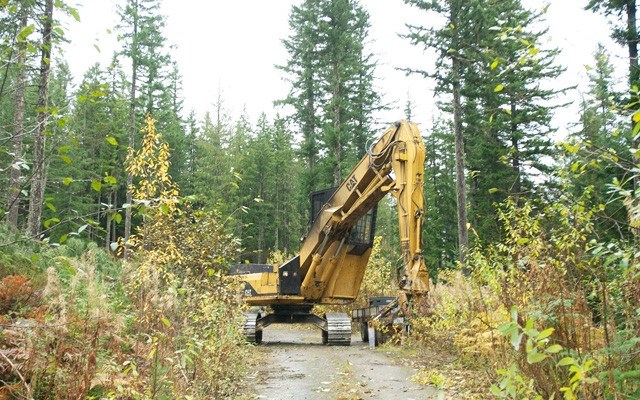Logging debris that was not properly disposed of created "significant wildfire risk" in Whistler's Cheakamus Community Forest (CCF), according to an audit by the B.C. Forest Practices Board.
In a release Wednesday, May 18, the independent forestry watchdog said the Cheakamus Community Forest Limited Partnership met almost all of the requirements of the provincial Forest and Range Practice Act, the Wildfire Act and related land-use orders—with the exception of a requirement to address fire hazards following logging activity.
In its September audit, the board found two piles of logging debris, called slash piles, in one cutblock, which fails to meet requirements to dispose of the piles to reduce wildfire risk. Eight additional slash piles were also not disposed of, but because they were technically within Resort Municipality of Whistler (RMOW) boundaries, municipal bylaws supercede some sections of the Wildfire Act. The board noted, however, that Whistler's bylaws do not include a requirement to address debris left after industrial activities.
"Leaving this slash created a significant wildfire risk," said Kevin Kriese, chair of the Forest Practices Board, in the release. "These piles were adjacent to forest service roads in areas with significant public use and unregulated camping. The risk of a fire starting in these piles was significant, and this is a gap in the local bylaws. The board is recommending the municipality update its bylaws to create a requirement equivalent to the Wildfire Act."
The slash piles have been disposed of since the audit was completed last fall.
Two cutblocks were harvested during the CCF audit period to reduce forest fuels and wildfire risk. The board noted it was "pleased to see the CCF proactively managing forest fuels in the area, and this needs to be supported by proper disposal of slash following harvest."
The CCF also maintained 67 kilometres of road and 11 crossing structures, and carried out reforestation and regeneration activities, the audit found.
Auditors also examined requirements in the Sea to Sky Land and Resource Management Plan as well as the legal objectives for the Whistler Interpretive Forest, including "protection of old growth, cultural places, forest health, recreation, riparian areas, water, wildlife and visual-quality values," the release went on. "The CCF's activities were consistent with these objectives and requirements."
The CCF is co-managed by the RMOW, the Lil'wat and Squamish Nations.
In February, the CCF board decided to defer old-growth logging until at least the end of the year, as it looks at ways to diversify its revenue. With little commercially harvestable old growth remaining in the community forest, the partners are looking to put greater focus on other potential revenue generators, such as mature and second-growth logging and its carbon sequestration program.
Pique will have more on this story in next week's print edition.




